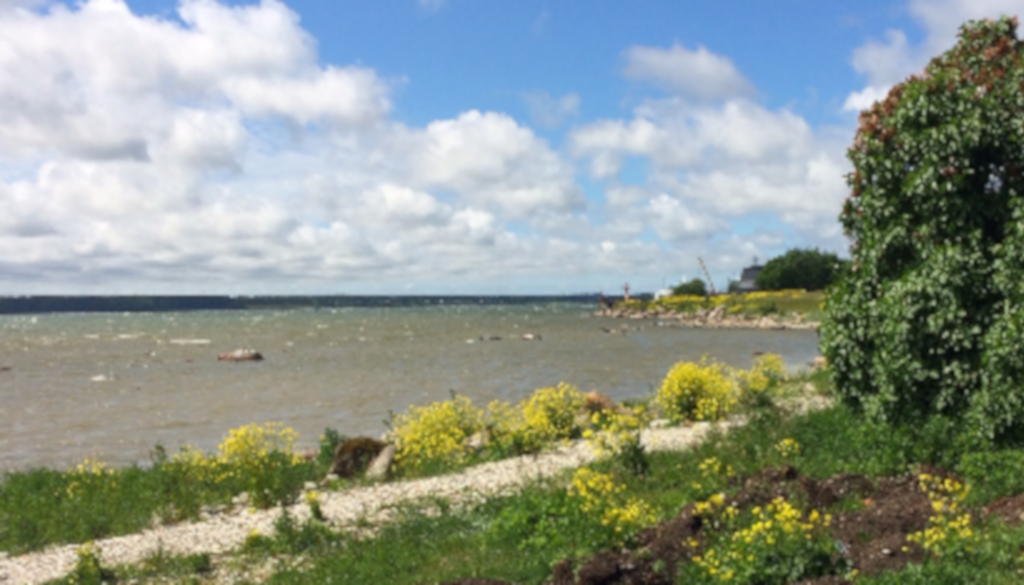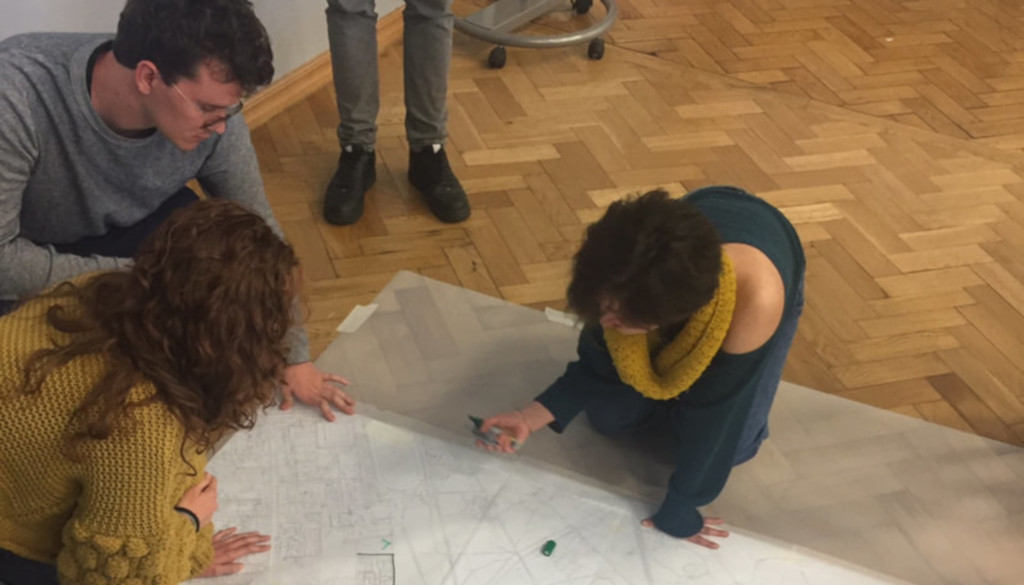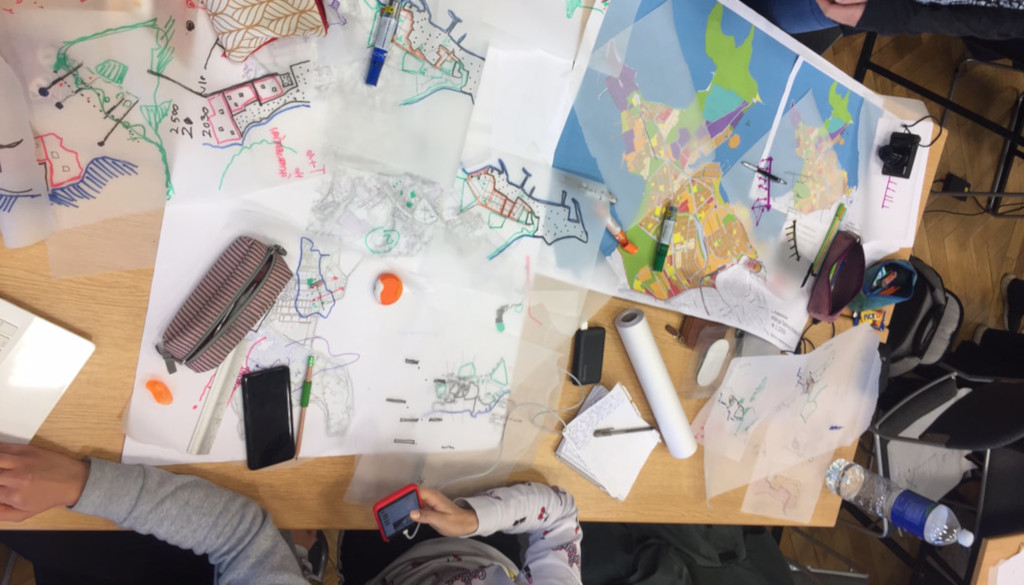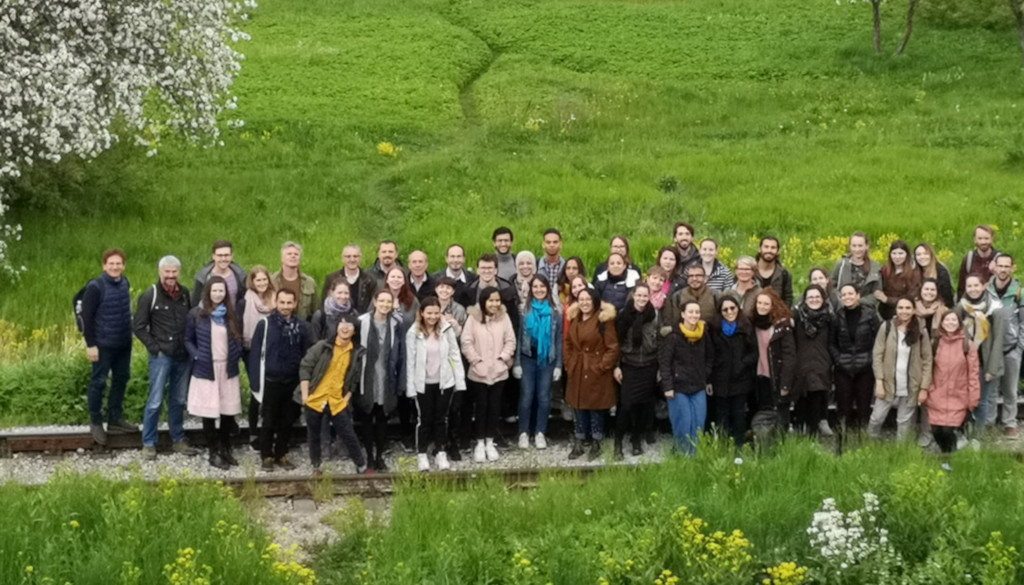The Kopli peninsula is on the brink of a fundamental transformation into a new urban extension of Tallinn while keeping its function for a shipyard and respecting ecological values in and around the area, such as the park areas, old forests and the bird directive area of Paljassaare.
The second COLAND workshop was held in Tallinn (Estonia) during the week 20-27 of May 2019. All participants did a preparatory online course before travelling to the Baltic Sea. Approximately thirty-five students were tutored by twenty teachers from the seven partner universities. After surveys and analyses of the study area, the students envisioned possible transformations of the coastal landscape of North Tallinn-Kopli peninsula. Six teams of students were assigned as many case studies.
.On the first day, the local staff of the EMU presented the main challenges to be tackled by students. The main issues were the uses over the time and their impact upon the area; socio-economic dynamics (i.e. gentrification); the architectural and natural values; potential social contrasts between the local community and future of the area as a cultural hub; preservation of the architectural heritage, especially from the Soviet era. A member of the Tallinn Planning Department Office presented the main ongoing activities and projects in the area, such as new developments and green corridors. Two afternoon lectures illustrated the social capital of the area, the approaches to analyse the resources of the local community, and how to create a cooperative governance. Afterwards, the students freely visited the study areas, also to get personal impressions of the Baltic coastal landscape.
The second day focused on the comprehension of different methods to be used for analysing coastal landscapes: interviews of resident; the Blue Health Assessment Tool (BEAT), applying photography to the perception of water landscapes. Students had the chance to test the BEAT tool in the afternoon and discuss the results with tutors.
The third day started with the application of the visitors’ employment survey using a specific app and an all-morning walk in the entire peninsula. The results were processed and discussed in a plenary session on Thursday. In the afternoon, a lecture on the historical development of the area, focusing also on main residential, industrial and shipyard buildings, enabled the students to comprehend the significant changes occurred in the 20th-21st centuries. In addition, there was a guided visit of the area looking for significant landscape characteristics, buildings and sites.
From the fourth day on, the students were asked to work in teams, by drawing synthetic maps and sketches to communicate their perception of the coastal landscape. During the on-line seminar Jekaterina Balicka of EMU presented design strategies used in landscape projects for addressing blue-health issues, such as reconnecting people with the water, introducing water as a playful element. Martin Knuijt of OKRA landscape architects (NL) showed two cutting edge projects along the Dutch Coast (Katwijk aan Zee and Cadzand Bad) that showed how landscape design can create multifunctional values for coastal defences, pushing economic development, opportunities for leisure and nature experience.
There were two internal presentations – of the analysis on May 23 and design proposals on May 26 - plus a presentation on May 27 to experts and staff of the planning service of Tallinn. As in the previous ISPs, the method has integrated traditional analyses with innovative tools, enhancing the importance of site experiences and participation in the process of sustainable coastal landscape design.
For more information on the project please visit the COLAND website.




